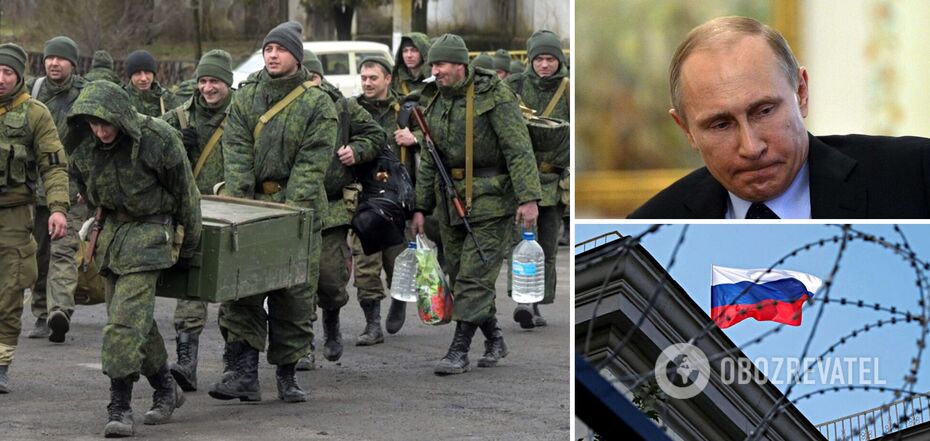Life
Mobilisation in Russia could derail economic recovery - Bloomberg
The economy of the aggressor country, Russia, is beginning to adapt to the impact of international sanctions imposed after the full-scale invasion of Ukraine. The Russian economy could return to pre-war levels in 2024, but mobilisation could hamper these plans.
This is stated in the material of Bloomberg. This is due to the fact that Russia will face a labour shortage, which will add to the economy's difficulties.
Journalists note that in the second quarter of this year, the GDP of the terrorist state increased by 4.9%, exceeding most forecasts.
"The period of annual decline since the invasion of Ukraine has been the longest in more than half a century. But with fiscal policy becoming increasingly loose in support of the war effort, gross domestic product grew by 4.9% in the second quarter," the report said.
In quarterly terms, Russia's economy has already shown growth, and the surge became more pronounced between April and June.
The publication notes that increased defence spending is boosting industrial production. And consumer demand is gaining momentum amid growing government spending on social support and wage increases.
"But the Kremlin's drive to expand military recruitment could hamper this as labour shortages intensify," Bloomberg notes.
In this regard, the agency suggests that Russia may introduce "targeted mobilisation", i.e. selective mobilisation.
"As Russia tries to recruit more volunteers to take part in President Vladimir Putin's invasion of Ukraine, it risks creating a labour drain. This could prompt a move to more selective conscription measures for people whose absence will not be felt as strongly in the labour market," the article says.
The journalists reminded that Russian dictator Putin signed a law raising the upper limit of the conscription age from 27 to 30 years old from January 2024 and prohibiting men from leaving the country after they have received an electronic summons. Bloomberg Economics Russia economist Alexander Isakov believes that these measures could allow for "targeted mobilisation", which would accelerate short-term economic growth by reducing the impact of labour shortages. This could allow the Russian economy to reach pre-war levels by mid-to-late 2024.
It should be noted that at the same time, the sanctions that are hitting Russia hard, the plummeting incomes and capital outflows have been compounded by a record drop in the ruble against the dollar - the US currency in Russia has soared to almost 100 rubles for the first time in 16 months. However, this is not the limit - according to forecasts, the ruble will continue to fall in the future.
As OBOZREVATEL reported earlier, Russians were buying up Tether cryptocurrency en masse on the day of Prigozhin's mutiny. The reasons were fear of a weakening ruble and a desire to find an alternative to it.
Only verified information is available on our Obozrevatel Telegram channel, Threads and Viber. Don't fall for fakes!



























